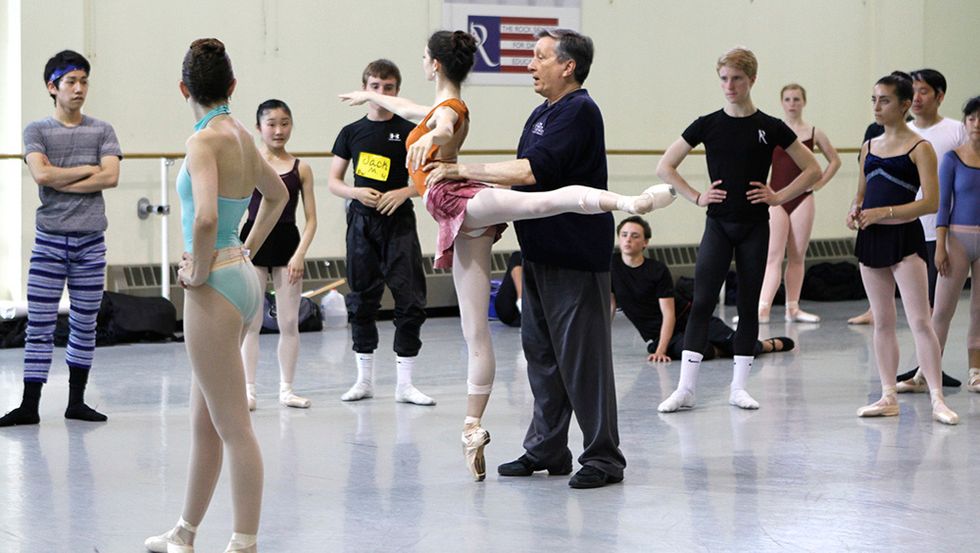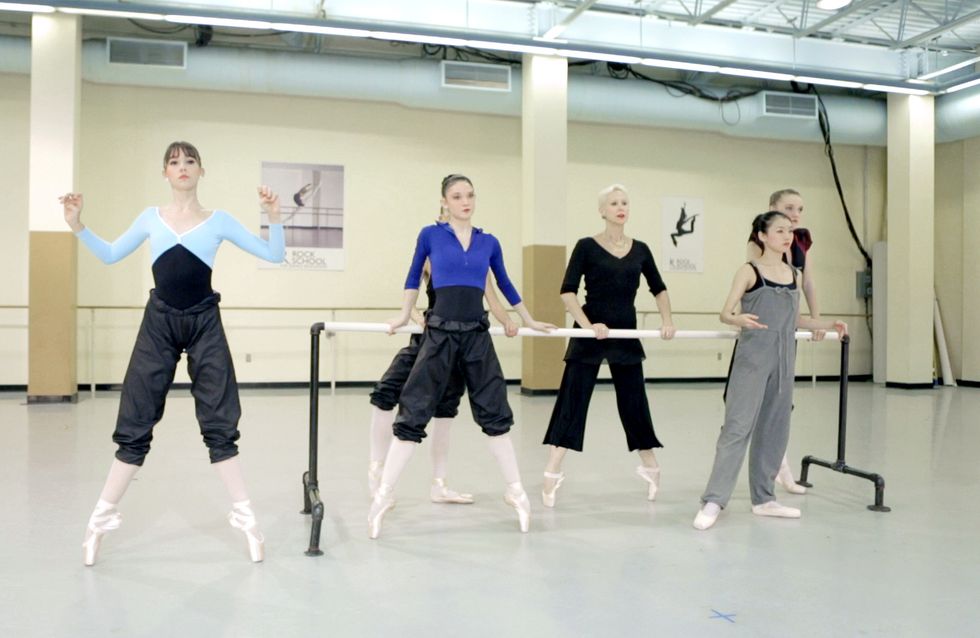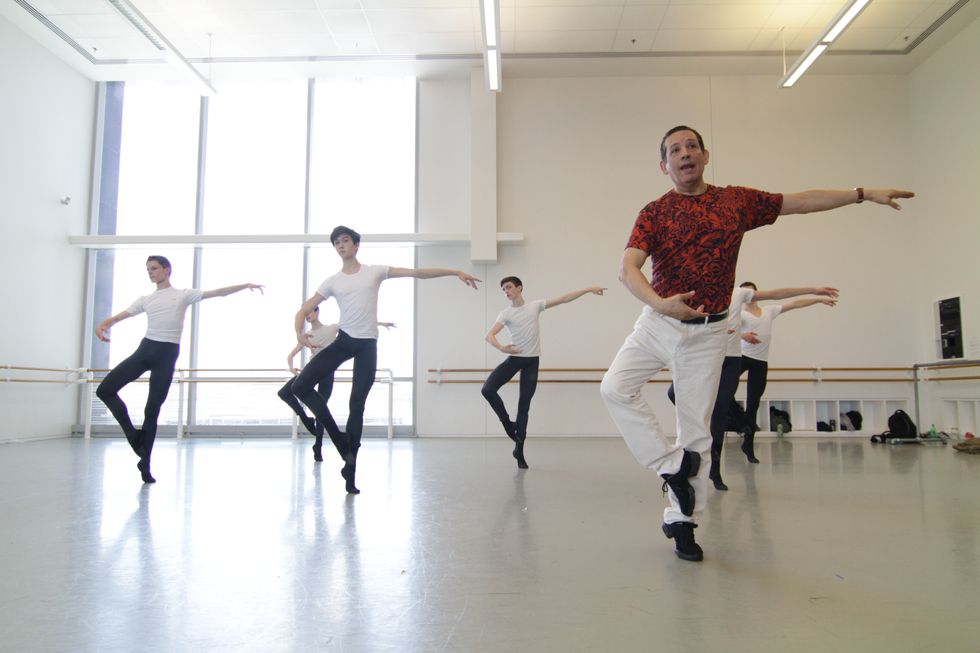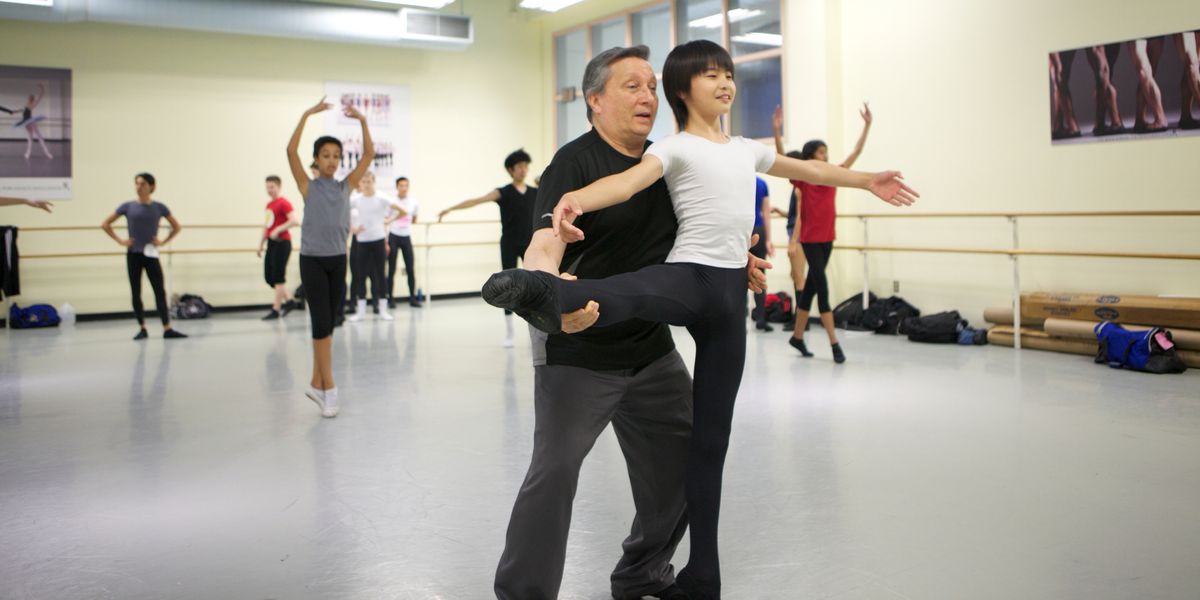How to Find a Competition Coach–And What to Do When You Get One
When you’re preparing for a competition, it’s critical to find a coach who can refine your technique and bring out your artistry. Their expertise, along with your trust, professionalism and commitment, will be key to getting the most out of your solo rehearsals—and will make or break your performance. But how do you choose a coach who’s right for you?
What a Coach Does
Coaching is one part science and one part inspiration, says Ilka Doubek, artistic director of Litchfield Dance Arts Academy in South Carolina. “A coach should be able to create exercises that help you build up to the skills you’ll need and get you to express yourself through the movement,” she says.

Bo Spassoff, PC Catherine Park
But there’s no one-size-fits-all approach to coaching, says Bo Spassoff, co-director of The Rock School for Dance Education in Philadelphia. “For some students it may be important to have someone tough, but for a student who is very self-deprecating, the coach’s ability to give positive reinforcement may be the biggest priority.” Either way, a coach should analyze exactly what you need to do to reach your goals and match your level of commitment.
How to Find the One
As important as it is to find a coach who can bring out your best, the final pairing may not be up to you—your parent or teacher may end up making the call. Studio-hoppers or dancers from a large academy may get the value of multiple perspectives: At The Rock School, Bo and Stephanie Spassoff have a unique approach in which dancers are coached by multiple faculty members. “Once the variation has been taught by one of us, we start rotating within the coaching staff so there are a lot of eyes on them,” says Stephanie. Dancers benefit from each coach’s specialty, whether it be turning, jumping, musicality or character—almost like a board of advisors.

Stephanie Spassoff with students
The Spassoffs admit their approach is atypical. They recommend trying the more traditional route of looking at top schools in your area to see if someone on faculty has extra time to spend with you, or developing a relationship with someone from your own studio.
If you need to lock down a coach outside of a studio environment, think of it as finding a mentor, says Doubek. Go to summer intensives and master classes, and look for teachers whom you relate to.
Don’t Get Comfortable
You might think you know what teaching style works best for you and picture learning a variation in that kind of environment. But succeeding at competitions isn’t just about being proficient at the steps—a large part of a coach’s role is to push the dancer to understand the arc of her character and the feeling of her variation. “We work together to carry a story through the steps,” says Claudio Muñoz, who serves as ballet master for Houston Ballet II and has coached students for the Prix de Lausanne and Beijing International Ballet and Choreography Competition.

Claudio Muñoz, PC Jaime Lagdameo
To challenge yourself, find a coach who can take you outside your comfort zone. “The truth is that the meanest teacher might be the one to connect and relate best with you about the artistry of the variation,” says Doubek.
When you’re considering working with someone new, Muñoz says that a rapport may take some time to establish, but you have to see the potential to trust each other, because the process won’t always be easy. “You may have to lose something to gain something, to unlearn the wrong way of turning to be able to get it right, for example,” he says. “If the dancer doesn’t trust in me, it’s very difficult to get through that.”




